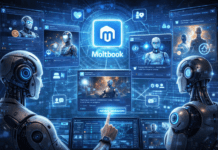This post is also available in:
 עברית (Hebrew)
עברית (Hebrew)
A common trope in sci-fi novels is the existence of robotic assistants that help you carry out everyday tasks. According to tech services company Capgemini, we are swiftly approaching the days where this fantasy becomes a reality. They believe that by 2025, AI-powered agents will cooperate with each other and resolve issues in a “multi-agent AI” system.
According to CNBC, Capgemini describes AI agents as “technology designed to function independently, plan, reflect, pursue higher-level goals, and execute complex workflows with minimal or limited direct human oversight”, and says that they are already “seeing companies that are discussing those agent technologies.”.
In mid-July, Capgemini released a research report by the name of “Harnessing the Value of Generative AI”, which surveyed over 1100 companies with a revenue of at least 1 billion dollars. The research revealed that a whopping 82% of the companies that were surveyed plan to integrate AI agents within one to three years, while only 7% have no plans to integrate them at all.
According to Pascal Brier, the company’s chief innovation officer, these AI agents are divided into two categories: single agents that carry out tasks for the individual, and multi-agent technology, which includes multiple agents “speaking” to each other. This allows for utilizing the power of AI to create automation, as well as free human employees from repetitive tasks.
What differentiates these agents from the AI systems we know today, is that instead of merely follow instructions, they will be able to “understand, interpret, adapt, and act independently and, for certain tasks, are capable of replacing human workers,” as reported on CNBC’s interview with Capgemini.
Capgemini said in its report that 300% more organizations are now implementing generative AI in the workplace. It appears that this phenomenon is more prevalent in large companies than smaller ones, and it grows as the annual revenue of the company is higher. Additionally, the research showed that the results change from industry to industry. For example, in the field of aerospace and defense, 88% of organizations have invested in generative AI, but in retail, it is only 66%.


























